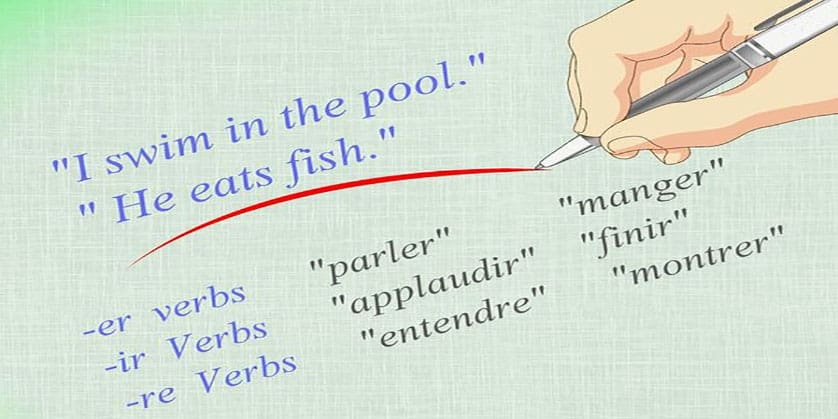
The Land of Verbia
The Land of Verbia…
How I approach the Teaching of Verbs in French…
-
Firstly, when I begin to teach students in 1st year (12-13 years old) I generally begin by telling them a story. They of course do not realise how important verbs are at this stage of learning a new language, but after the story, they get a little bit more to grips with it. I begin by asking the students if they have ever studied the country, The Land of Verbia…Verbia, as part of their geography syllabus. (You would be amazed at the number of students who think that they may have!)
-
Secondly, you then go on to tell them that The Land of Verbia...is not an actual country but that for the purposes of learning French. They will be using this fictitious kingdom as a way of learning about French verbs. The students really get into it, as the concept of grammar is alien to a lot of them. They have of course learnt at least one language, but this was done in an informal way. I agree that immersion is the best method in language learning but in a classroom setting, it is so important to get the students to work through their imagination, to get to grips with conceptual learning.
-
The Land of Verbia…is a land of verbs and wonderful grammatical constructions and conjugations. It is not found on any map as it is a grammatical landscape, where wonderful things are constantly happening. It is an action-filled place, where no verb remains still for very long…!”
-
Meanwhile, I tell them that Verbia is a country ruled by a King and queen. We discuss the words like monarchy and nobility as these words will be used as we progress with language learning, in the context of our grammatical tale. The first lesson looks at the Royal Family in Verbia, which is made up of four verbs, which are considered extremely important for different reasons. I always refer to these four as the Royal Family. In my next post, I will be introducing you to the three most important members of Verbia’s nobility.
The Royal Family….The Land of Verbia…
1. Être – To Be (King)
In short, I refer to this verb as the King of the verbs, as it is the only verb, which has a circumflex or “crown” on its first letter. The importance of the verb être is without precedent. If I were to personify this verb, I would say that it is like a totalitarian ruler, in that any time you see être in a sentence, everything has to agree with it. Also it is quite the existentialist! It deals with states of being. Whatever you are, you must use être to tell us about it…to say for example that you are tall, German, your colour of eyes , what job you have etc…
2. Avoir – To Have (Queen)
In other words, if there was ever a question of grammar imitating life, this would be it…Avoir is like the queen of the verbs. She is “married” to être, and holds enormous power over her subjects and her husband! If you look at the Passé composé in French. Here you will see that only 16 verbs take être and all the others (1000’s) take avoir to form their past. As in day to day living, the king is subservient to his queen, and cannot be formed in the past tense without her!
As a result, Avoir is also used in a lot of expressions – to be lucky in French is to have luck “Avoir de la Chance!” She is also used in a lot of constructions, where the logical thing for an English speaker would be to use être.
An example of this would be:
- J’ai 15 ans – I am 15 years old.
The French say that they have 15 years or that they have racked up 15 years of life. The idea of having 15 years of life under their belt!
3. Aller – To Go (Prince)
The king and queen have two children, a boy, Prince “Aller” and a girl Princess“Faire”. Aller is a kind of wild child, in that he is not at all stable, running hither and thither all the time. He is however a very progressive lad, who is instrumental in forming the future. In fact, it is very easy to completely by-pass the Futur Simple and use the futur Proche for any dealings that you might have at a later time. You simply put the verb aller in the present tense and add whatever verb you need in the infinitive to get you where you want to go!
An example of this would be:
- I am going to wash the car. – Je vais (verb aller in the present tense + laver (to wash) la voiture (the car).
4. Faire – To Do/To Make (Princess)
in addition, it is true to say that very little gets done without Princess Faire getting involved! She is over the weather in Verbia, as well as Sports and is used in causative constructions. An example of a causative construction is the following: L’électricité fait fonctionner la télévision (Electricity makes the television work).
